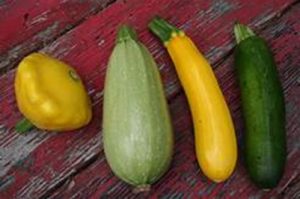By Debbie Roland and
Emmy Ulmschneider
Master Gardeners
It is time that you should strive to plant three things in your garden: cucumbers, okra, and squash. These plants will only sprout and thrive when the soil temperature is above 80 degrees.
Cucumbers: (Cucumis sativis) Cucumbers require consistent watering to produce well. This delicious annual only takes sixty days to reach maturity. I find that planting in an area with some shade works best when the July and August heat wave is upon us.
Direct sow seeds 1/2” deep at least 12” apart. Transplants do not grow as well as direct seeding since they do not like to have their roots disturbed. A trellis is needed since they are climbers.
Cucumbers are one of our most ancient vegetables. They originated in India and have been grown for over 3000 years. Christopher Columbus is credited with bringing cucumbers to the New World. In 1539, Henry de Soto encountered cucumbers in Florida during his exploration of southern North America. Cucumbers spread widely after that; early colonists grew about 8 varieties. In 1876, Henry J. Heinz added pickles to his products and the rest is history.

Okra: (Abelmoschus esculentus) A member of the mallow family (think hibiscus and cotton), okra’s edible seed pods are a southern favorite especially since they require less water than most garden plants. They can succumb to even a light frost during the growing season, so the southern states are well suited for them.
Plant 1/2” deep and 18” apart. Soak the seeds overnight before planting. Apply organic fertilizer several times during the growing season. They get tough quickly so harvest when immature which is 3” in length.
Indigenous to Africa and SE Asia, okra was most likely brought in by slaves from West Africa. Okra also has a long history of cultivation going back to the 12th century BC. Interestingly, the seeds of mature plants were toasted, ground, and used as a coffee substitute.
Summer Squash: (Cucurbita pepo) Squash does best when started from seed since plants are brittle and do not like to be disturbed. All squash are big plants so plan accordingly.
Summer squash is not the same as winter squash and they are grown at different times of the year. Plant 2’ apart 1/2” deep.
Unlike okra and cucumber, summer squashes originated in Mexico and Central America and are believed to be the oldest cultivated plants in North America.
So, when you enjoy the fruit of your labor and harvest these plants, take a taste trip back in time. Know that you are savoring some of the tastes that have travelled around the world and have been enjoyed for millennia.
For more information, call the AgriLife office at 498-4071 in Odessa or at 686-4700 in Midland or visit aggie-horticulture.tamu.edu or westtexasgardening.org.




